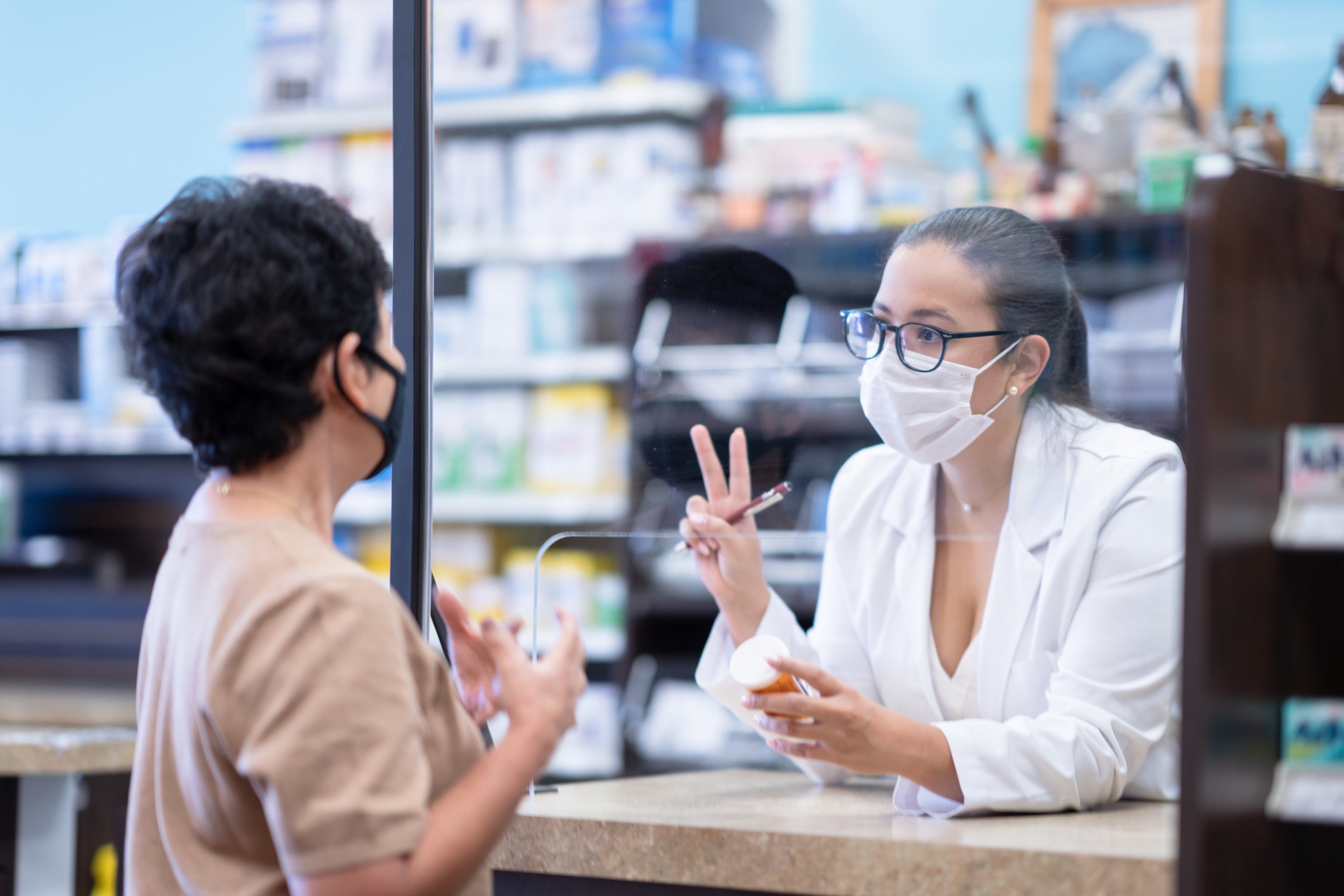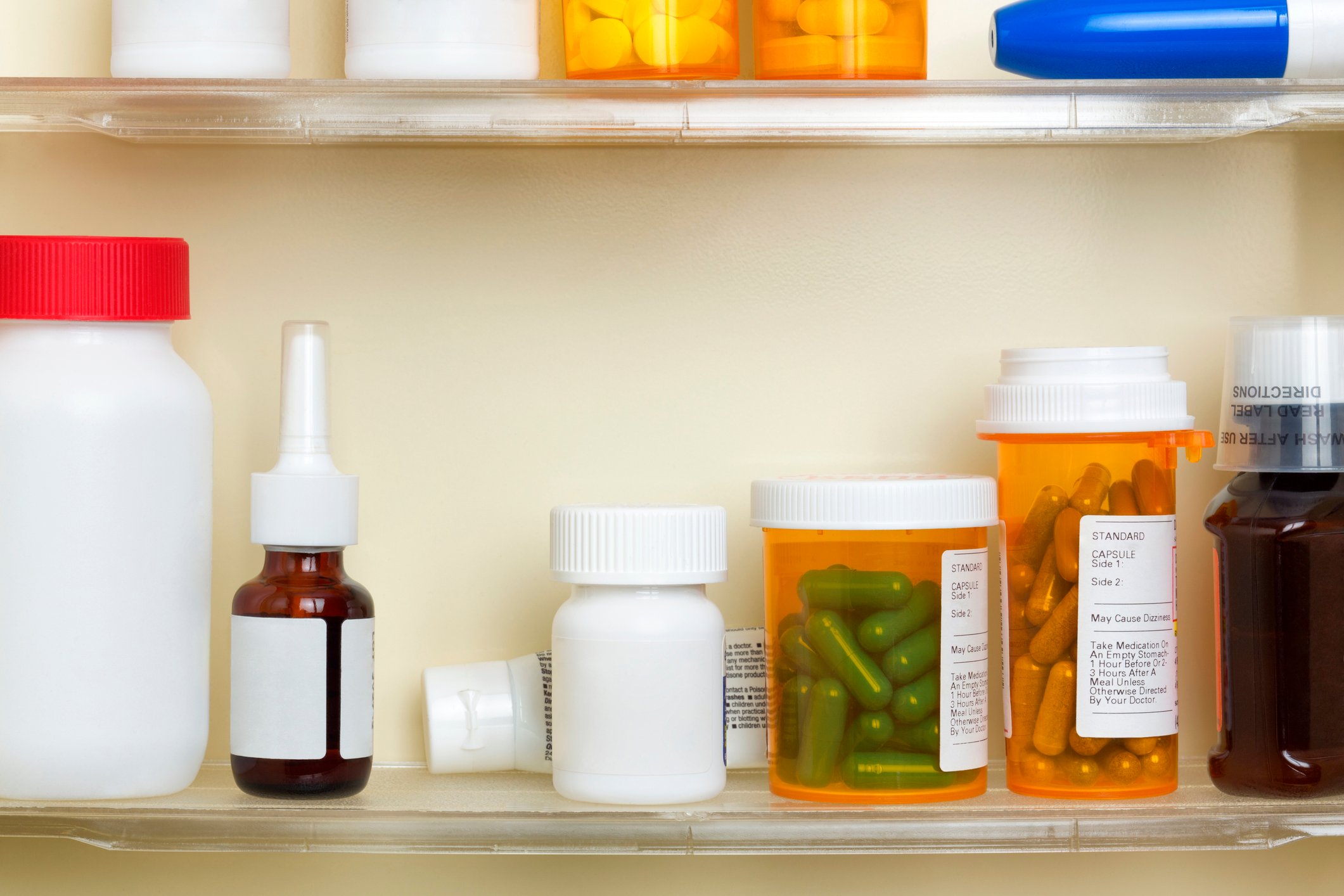AbbVie Inc. (ABBV +0.48%) and Gilead Sciences (GILD 0.10%) are two of the world's biggest biotech stocks. However, their sales have been heading in different directions and each has offered up very different forecasts for 2018. Given that these titans are competing head to head for a share in the multibillion-dollar market for hepatitis C drugs, is one of these stocks a better buy than the other?
Grading their growth
It can pay to invest in companies that are growing sales and profit. By that measure, AbbVie is undeniably the better of the two stocks.

IMAGE SOURCE: GETTY IMAGES.
Because of increased competition from AbbVie and other hepatitis C drugmakers, Gilead Sciences' sales and earnings have been declining since 2016.
Gilead Sciences remains a dominant force in HIV treatment, and HIV drug sales have been increasing thanks to the launch of new combination therapies that include TAF, a safer reformulation of the popular HIV drug Viread. However, Gilead Sciences' HIV revenue growth hasn't been able to offset declining demand for the company's hepatitis C medicine, and since sales are falling faster than expenses, the company's earnings are suffering.
Gilead Sciences' hepatitis C sales fell 54% year over year to $1.5 billion in Q4 2017. Total revenue declined in 2017 to $26 billion from $30 billion in 2016, and EPS fell to $8.84 from $11.57.
It's been a very different story at AbbVie. Growing demand for its best-selling drugs, Humira and Imbruvica, and new drug launches, including Mavyret, the company's latest hepatitis C treatment, are increasing sales by double-digit percentages. Sales of its best-selling drug, Humira, grew 14.6% to $18.4 billion, and revenue from its second best-selling drug, Imbruvica, soared 40.5% to $2.6 billion in 2017. The launch of Mavyret last August boosted AbbVie's hepatitis C revenue by 63% year over year to $510 million in Q4 2017.
Those tailwinds translated into full-year sales of $28.2 billion, up 10% from one year ago, and EPS of $5.60, up from $4.82. With AbbVie's revenue and earnings rising and Gilead Sciences still descending, I have to give AbbVie the win in this category.

IMAGE SOURCE: GETTY IMAGES.
Pondering pipelines
Gilead Sciences invests heavily in mergers and acquisitions and in research and development. And that means it has exciting drugs advancing through its drug pipeline. However, I have to give the advantage to AbbVie in this category, too.
Gilead Sciences catapulted to the forefront of research into the use of gene therapies as cancer treatments when it acquired Kite Pharma for $11.9 billion last year, but it faces stiff competition in this field from many competitors, including Novartis (NVS +0.59%) and Celgene (CELG +0.00%), that could limit that market opportunity.
Gilead Sciences' Yescarta is the only CAR-T gene therapy on the market for late-stage non-Hodgkin lymphoma currently, but it generated only $7 million in sales since its launch last October. With Novartis' gene therapy, Kymriah, already under priority review for use in Yescarta's indication and Celgene's gene therapy, JCAR017, possibly being filed for FDA approval this year, Gilead Sciences may have to fight tooth-and-nail for market share.
Gilead Sciences' filgotinib, an autoimmune-disease drug, and serotinib, a treatment for non-alcoholic fatty liver disease, appear promising, but we won't know just how promising until pivotal data emerges. Filgotinib's phase 3 rheumatoid arthritis data is expected this year, but we may have to wait until next year for more insight on serotinib.
Arguably, AbbVie's pipeline has fewer question marks. FDA decisions are pending for Elagolix, an endometrioisis drug, and Venclexta, a chronic lymphocytic leukemia drug, that could eventually lead to blockbuster revenue.
AbbVie also has three potential blockbuster drugs that it hopes to file for FDA approval soon: risankizumab, upadacitinib, and Rova-T.
Risankizumab has already successfully completed phase 3 psoriasis trials, and a filing is planned by the end of June. Upadacitinib has already put up impressive data in one phase 3 rheumatoid arthritis study, and two more phase 3 studies are expected to have data available shortly that could support a filing before the end of this year. Rova-T may also be filed for approval this year if it delivers strong phase 2 results in third-line or greater small-cell lung cancer. According to management, all three drugs could be multibillion-dollar-per-year top sellers.

IMAGE SOURCE: GETTY IMAGES.
Debating dividends
Both companies offer income investors market-beating dividend yields, and each company has wads of cash at its disposal to boost dividends in the future.
Gilead Sciences initiated its quarterly dividend in 2015, and since then, it's increased the payout from $0.43 to $0.57. Its fat operating margin means it generates more than enough free cash flow to support its dividend even though its sales are falling. In fact, its cash dividend payout ratio is only 23%, significantly lower than AbbVie's, which is north of 50%. Clearly, Gilead Sciences has wiggle room to return more money to investors through dividends.
AbbVie's dividend potential may be even more compelling, though. Since being spun out of Abbott Labs in 2013, its dividend has increased by 140%. Given AbbVie's double-digit top- and bottom-line growth, a recent 35% increase to its quarterly dividend payment, multiple potential blockbuster approvals, and a forward dividend yield of 3.3% that's better than Gilead Sciences' 2.8% rate, AbbVie looks better here, too.
One more thing
The one category where Gilead Sciences shines versus AbbVie is in valuation. AbbVie trades at a forward P/E of 13 and a price-to-sales of 6.4, while Gilead Sciences trades at 12.3 times forward EPS and 3.9 times sales. Clearly, Gilead Sciences is cheaper than AbbVie. That alone might not be enough of a reason to favor it over AbbVie, though.
Gilead Sciences is forecasting sales of between only $20 billion and $21 billion this year, down from $25.7 billion in 2016, and if its sales and profit fall faster than feared, then its valuation advantage could fade, especially if AbbVie over-delivers on its outlook for 13% sales growth this year.
For this reason, I think AbbVie is the better stock to buy until Gilead Sciences proves its sales and profit have stopped declining.









